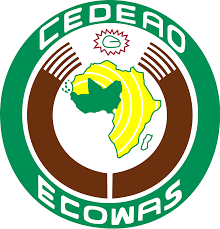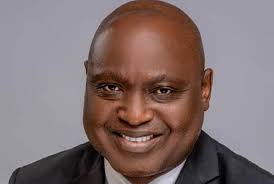Saving ECOWAS by applying the brakes in Niger Republic.

By Owei Lakemfa.
Yahaya Hashim, a quiet, reflective and highly analytical intellectual is a man I have learnt to listen to for over four decades. So I was not surprised when after all the drama over the July, 2023 coup in Niger Republic, including threats of invasion, sanctions, border closures, electricity cut-off, and a world that seemed to have moved on, he returned to the Niger issue. I knew I had to listen to him.
His position is that a military intervention in Niger will lead to crisis in that country which will inevitably spill over into Nigeria particularly its poor regions in the North.
Secondly, he argued that there will be an influx of poor people from Niger most of whom will not find jobs in Nigeria and might therefore be open to recruitment into the ranks of bandits and insurgents. Thirdly, he argued, there is evidence of the involvement of nationals of the neighbouring countries in terrorism, banditry and farmer-herder conflict in Nigeria. So the situation may get worse.
Hashim posited that Nigeria’s borders with Niger cannot be easily policed. So, the influx of both refugees and criminal elements cannot be contained if there is crisis in Niger. He reflected that when there was crises in Tchad, Nigerian highways became unsafe especially in the North and the military had to be deployed to the Lake Chad area and to our roads.
He warned that our democracy like most democracies today is fragile with key participants in the election still trying to delegitimize its outcome.
He also pointed out that Nigeria’s security forces are already overstretched given the increased number of theatres of insecurity in the country.
Hashim counselled that it is not in our best interest to deepen the crisis in Niger, and: “Besides it is not our business to ‘spread democracy’ let alone by force.
He said: “Democracy cannot be introduced from abroad or from another country and not by Military force.” He asked us to learn from the many failures of the United States, US in this regard.
The analyst said: “In our copycat mentality and our delusion of grandeur as ‘Giant of Africa’, we tend to adopt the tools of Global hegemons.”
Sanctions on a country, he said, is a collective punishment of its people and therefore an immoral tool of hegemons.
The intellectual posited that: “ECOWAS is not a sovereign; it is a club. Countries, on the other hand, are sovereign.”
In a Fanonian style, he warned Africans not to become neo-colonial tools in the hands of France: “The liberation of ‘Francophone’ African countries from the clutches of France was not completed. France controls the national reserves of 14 African countries. It imposed what it called colonial debt. A debt owed for colonizing (‘civilizing’) African countries. France has tied the currency of the so called ‘francophone’ countries to the French currency and to Euros subsequently. This has frustrated the ambition of ECOWAS to have a common currency for West Africa. All over Africa there is now an awareness of the dishonourable role of France in Africa.”
Some European countries he said, claim they have troops in Niger to protect it against terrorists: “If that were true, they would have threatened to withdraw their troops as a bargaining card for restoration of President Bazoum, instead their threat is to withdraw humanitarian aid and invade the very country they are supposed to be helping.”
Nigeria he said used to be concerned about military bases in Africa saying such bases in neigbouring countries is a red flag. He blamed the US and Europe for the destruction of Libya, the murder of President Ghadaffi and the subsequent spread of Al Qaeda and ISIS in the Sahel. Some, he said, have argued the West uses the insurgents as a check on the leaders of these countries. He concluded that if AU and ECOWAS want to use military force, it should be against the armed insurgents, not against the military of a sister country.
However, it was not only Yahaya Hashim that was continually thinking about some solution for Niger, the European Union, EU has also been at it except for different reasons. The Niger issue was on the front burner at the September 2023 plenary meeting of the European Parliament which sought ways of containing Niger.
In its September 29, 2023 briefing, the EU insisted that the coup must be reversed because it threatens the “security architecture that the European Union (EU), France, other EU Member States, such as Germany and Italy, and the United States sought to build in the Sahel to fight terrorism.”The following month, the EU initiated measures to impose sanctions on the military rulers in Niger.
While ECOWAS and the AU seemed to be snoring over all these, Burkina Faso, Mali and Niger on December 1, 2023 decided to create a confederation ‘The Alliance of Sahel States’ aimed at integrating their economic and defence structures. The confederation they said, offers “great potential for peace, stability, diplomatic strength and economic development that a strengthened political alliance offers”.
Two days later, Niger tore up two key military agreements it had with the EU; the Military Partnership Mission and the EU Civilian Capacity-Building Mission established in 2012.
The confederation in a way marked a parallel structure to the ECOWAS and has the potential of widening as it could potentially bring in Guinea. This in a region that is increasingly facing insecurity including an alleged coup attempt in Sierra Leone and a military strike in Guinea Bissau. Besides, there is the undemocratic regime in Cote d’Voire where President Alhassan Quatara is ruling for an unconstitutional third term, the creeping violence in Senegal where President Sall has been firmly denied an unconstitutional third term but is threatening the February 25, 2024 general elections by trying to stop the opposition leader.
Given the challenges of the region, the ECOWAS Parliament demanded that the Heads of State and Government should lift the sanctions imposed since July on the Niger Republic. Nigeria’s Senator Ali Ndume said the parliament took the decision because: “Children and women have been exposed to untold hardship. No meaningful progress has been made in resolving this issue.”
Finally, at the 64th Ordinary Session of ECOWAS, this Sunday, the Heads of State decided to dialogue with the Military regime in Niger primarily on the need for a short transition roadmap. It was a little disguised consensus to walk back from sanctions and a military invasion of Niger Republic. This may not be the news the West was hoping to hear, but it is in the best interest of Africa. Beyond this, we have an ECOWAS to repair and rebuild, and an Africa in urgent need of reconstruction and development if we are to stop being the foot mat of the world.


